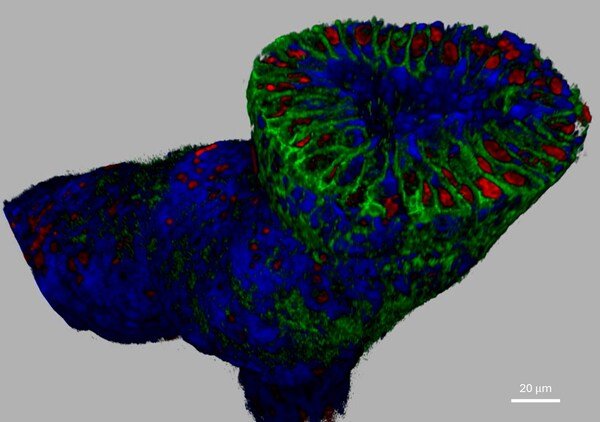
JelloX Biotech Inc., a Taiwan-based startup at the forefront of cancer pathology, announced the preliminary results of a research collaboration with the National Taiwan University Hospital (NTUH) on breast cancer patients. The study found that JelloX's 3D pathology technology identified a significantly increased proportion of tumors with HER2-low and HER2-ultralow expression compared to conventional methods, demonstrating this technology's increased sensitivity and potential as a superior diagnostic tool for HER2 detection in breast cancers.
According to the US National Cancer Institute, breast cancer is the most prevalent form of cancer. However, the difficulty of precisely determining treatment has made the identification of HER2 expression essential. In HER2-low and HER2-ultralow metastatic breast cancer, the novel antibody-drug conjugate (ADC) Trastuzumab deruxtecan (T-DXd) has demonstrated robust efficacy over conventional chemotherapy. Yet considering HER2 spatial heterogeneity, traditional diagnostic methods have shown to be less precise than 3D pathology in detecting the presence of the HER2 protein.
"For the specific challenges posed by metastatic breast cancer and the need to identify predictive biomarkers accurately, the high sampling capacity of 3D pathology holds particular potential," commented Dr. Yen-Yin Lin, CEO of JelloX. "JelloX Biotech's Comprehensive HER2 Diagnostic Solution is poised to revolutionize HER2 diagnostics. With a more comprehensive data set on tumor samples, healthcare providers can be empowered to make more precise diagnoses, ensuring that the right patients receive the right treatment at the right time."
New findings with NTUH on HER2 breast cancer
In JelloX's research collaboration with NTUH, preliminary findings indicate that more than half of the analyzed cases exhibited diagnostic discrepancies when re-evaluated using the company's advanced 3D pathology methods. Notably, among patients initially classified as HER2-null by traditional methods, more than 66.7% were reclassified as HER2-expressing (HER2-low or HER2-ultralow) using 3D technology, thereby becoming potentially eligible for T-DXd treatment.
These findings echo the company's recent results using samples from colorectal and esophageal cancers, demonstrating that 3D pathology may have broader potential across various cancer types.
The full findings will be shared at the Global Breast Cancer Conference in South Korea on April 17. https://gbcc.kr/Main.asp
Implications for breast cancer treatment and drug guidelines
T-DXd has demonstrated significant efficacy in tumors with HER2 expression. However, tumors classified as HER2-null under conventional pathological testing are ineligible for T-DXd treatment. By detecting HER2 more precisely using 3D pathology methods, we can identify more patients eligible for T-DXd therapy.
In addition to cancer patients, JelloX's 3D pathology technology has the potential to expand possibilities across healthcare stakeholders: